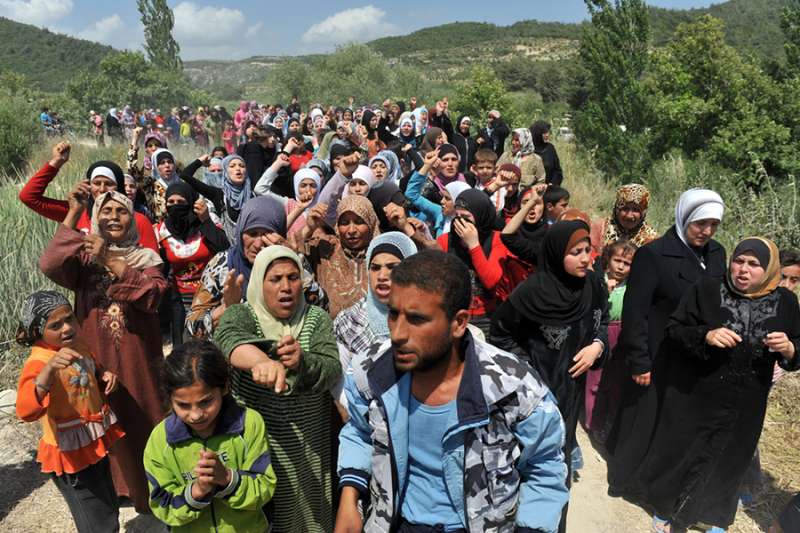The Vatican’s representative at the United Nations expressed hope that a new UN agreement on best practices for international migration will guarantee respect for the human dignity of all migrants.
Archbishop Bernardito Auza, the Holy See’s Permanent Observer to the UN, spoke July 13 at the concluding session of intergovernmental negotiations on migration, the culmination of a nearly two-year process.
“This first-ever comprehensive framework on migration will serve as the international reference point for best practices and international cooperation in the global management of migration, not only for Governments, but also for non-governmental entities among which are the faith-based organizations, who are truly the hands and feet on the ground to assist migrants in difficulty,” said Auza.
The agreement -- the Global Compact for Safe, Orderly and Regular Migration -- details 23 international objectives, including the eradication of human trafficking and “use of migration detention only as a measure of last resort.”
Since 2000, more than 60,000 people have died in their attempt to migrate, according to the International Organization of Migration's research on migrant deaths and disappearances.
The Vatican representative told the UN that “Pope Francis encapsulates these shared responsibilities and solidarity in four verbs: to welcome, to protect, to promote and to integrate.”
“This Global Compact will make it more difficult for anyone — States, civil society or anyone of us — to be unaware of the challenges that people on the move face and to fail to meet our shared responsibilities towards them, in particular toward those most in need of our solidarity,” continued Auza.
Auza quoted Pope Francis’ Mass for Migrants homily on July 6. “Before the challenges of contemporary movements of migration, the only reasonable response is one of solidarity and mercy . . . A just policy is one at the service of the person, of every person involved; a policy that provides for solutions that can ensure security, respect for the rights and dignity of all; a policy concerned for the good of one’s own country, while taking into account that of others in an ever more interconnected world.”
The archbishop added that the Catholic Church “will continue to commit itself fully to the benefit of migrants, always respecting their rights and human dignity.”
The global compact on migration will be formally adopted at a UN meeting in Marrakech, Morocco on Dec. 10-11. Following a decision by the Trump administration, the United States withdrew from the negotiations in December 2017.
“The Holy See nurtures the hope that the Global Compact will not only be a matter of good migration management, but truly be, as is its ultimate purpose, a significant step forward in the service of the person, not only of every migrant, but for all of humanity,” concluded the archbishop.

